
TEHRAN, Sep. 17 (MNA) – Lightning strikes have killed seven people in Yemen’s northwestern province of Hodeidah in the past 24 hours, local health authorities have said.


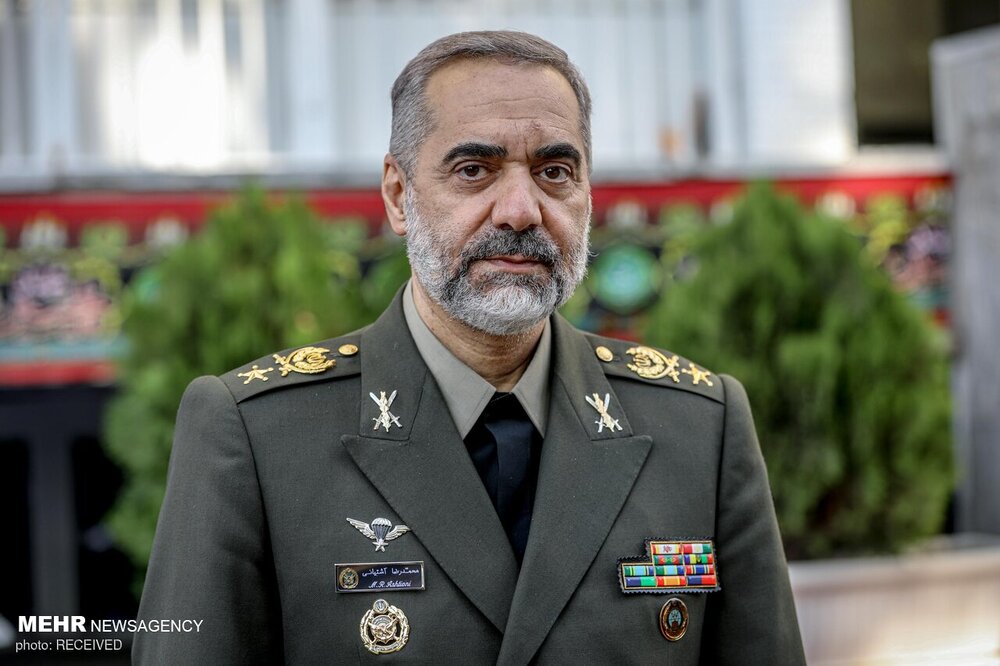

Regarding the actions taken by Iraq regarding the security agreement, Mohammadreza Ashtiani in an interview on Sunday stated, “Some measures have been taken, we will evaluate in the 90th minute and make a decision based on this evaluation.”
Earlier on Monday, Foreign Ministry Spokesman Nasser Kan’ani said that the deadline for implementing this agreement will not be extended under any circumstances and this matter has been officially announced by Iranian officials to the Iraqi side.
In July, the Chief of Staff of the Iranian Armed Forces warned Iraq over the presence and the activity of anti-Iran terrorist groups in that country.
Major General Mohammad Bagheri said that Iran waits until Iraq’s deadline is over and hopes that the Iraqi government fulfills its responsibility, but if the deadline is finished and the anti-Iran terrorists remain armed or continue to carry out operations, the country will resume acting against the terrorists.
IRGC Ground Force Commander Brigadier General Mohammad Pakpour earlier said that Iraq has undertaken a commitment to disarm and expel anti-Iran terrorists operating in the semi-autonomous Kurdistan region.
Since September 24, 2022, the IRGC has launched several rounds of airstrikes against the positions of the terrorists who are holed up in Iraqi Kurdistan.
The IRGC has urged the central government in Iraq and authorities in Kurdistan to meet their commitments toward Iran and take necessary measures to secure the border.
On November 21, 2022, positions of anti-Iran separatist and terrorist groups in northern Iraq came under combined attacks using missiles and kamikaze drones. The strikes targeted the positions of the notorious ‘Democratic Party of Iranian Kurdistan’ (PDKI) and the Komala Party in northern Iraqi Kurdistan, Iran’s Arabic-language al-Alam television news network reported at the time.
MNA/5887671
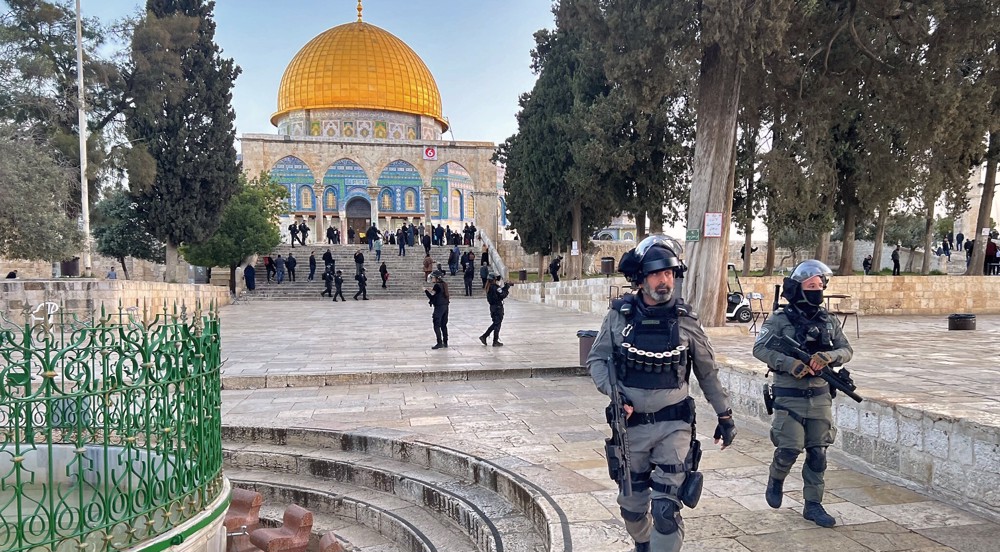
Israeli forces have brutally assaulted Muslim worshipers at one of the main entrances to the al-Aqsa Mosque compound in the occupied Old City of al-Quds.
Citing local sources, WAFA news agency reported that the occupation soldiers beat up three worshipers, including an elderly man and an elderly woman, near Bab as-Silsila (the Chain Gate) on Sunday morning.
The violence came after the trio protested peacefully against an Israeli settler, who blew a horn at the entrance to the Al-Aqsa Mosque, the report added.
Earlier in the day, Israeli occupation troops intensified their presence around the al-Aqsa Mosque complex, restricting the access of Muslim worshipers to the sacred site and preventing the entry of Palestinian citizens.
They also allowed scores of Israeli settlers to enter the compound in separate groups.
The Jordan-Run Islamic Waqf Department, which is in charge of al-Aqsa Mosque affairs, said in a statement that Israeli forces had permitted the provocative settler incursion.
The regime soldiers also assaulted Muslim worshipers and tried to forcibly evacuate them from the al-Aqsa Mosque courtyard, it noted.
Israeli settler incursions into al-Aqsa Mosque and violence against Palestinians have been on the rise since the far-right extremist cabinet of Prime Minister Benjamin Netanyahu took office last December.
This is while only Muslims are allowed to pray in the al-Aqsa Mosque complex under a status quo arrangement originally reached more than a century ago. Non-Muslim visitors are allowed visits at certain times and only to certain areas.
Hamas: Palestinians will not leave al-Aqsa alone
Meanwhile, the Hamas resistance movement said that the Palestinians have kept up their presence at the al-Aqsa and countered settler violations, vowing that they will never leave the mosque alone.
Mohammad Hamadeh, the spokesman for the Hamas branch in occupied al-Quds, emphasized that the break-ins into the al-Aqsa are a continuation of the occupiers’ acts of aggression.
He also stressed that the Palestinian resistance would go on until the decline and elimination of the usurping regime.
“The Palestinian nation remains united to defend the al-Aqsa Mosque and confront the incursions by the occupiers,” Hamadeh added. “The Zionist enemy will never be able to change the existing equation.”
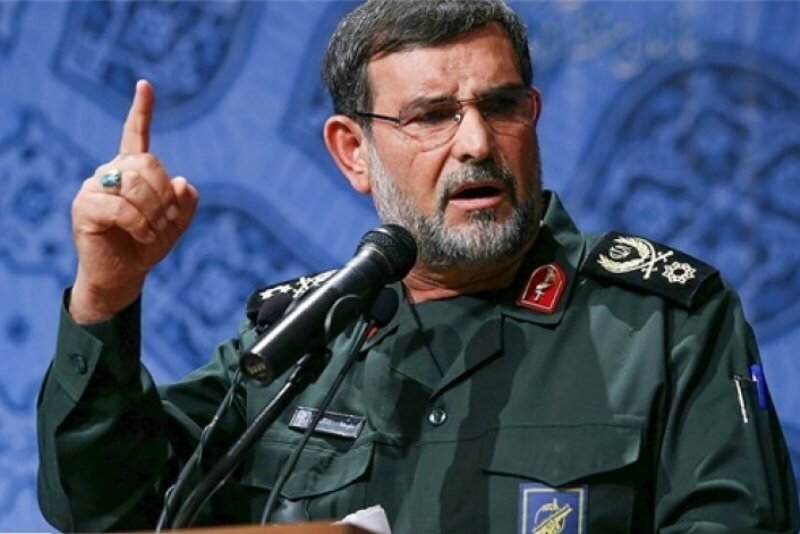

Tangsiri made the remarks in a meeting with the families of IRGC Navy force martyrs in Mashhad on Sunday.
The epic that the IRGC Navy martyrs formed is considered a turning point in the defense history of Iran in the Persian Gulf region.
“We call for establishing stable security in the country and the region, and as guardians of the country, we will sacrifice our lives to defend the lives of people,” he stressed.
Elsewhere in his remarks, the IRGC commander referred to the warmongering of the US in different parts of the world and said that the US crimes should be revealed to everyone.
He went on to say that today, the IRGC has progressed in various fields such as technology, and building the most modern warships, missiles, UAVs, and submarines.
MP/5887664
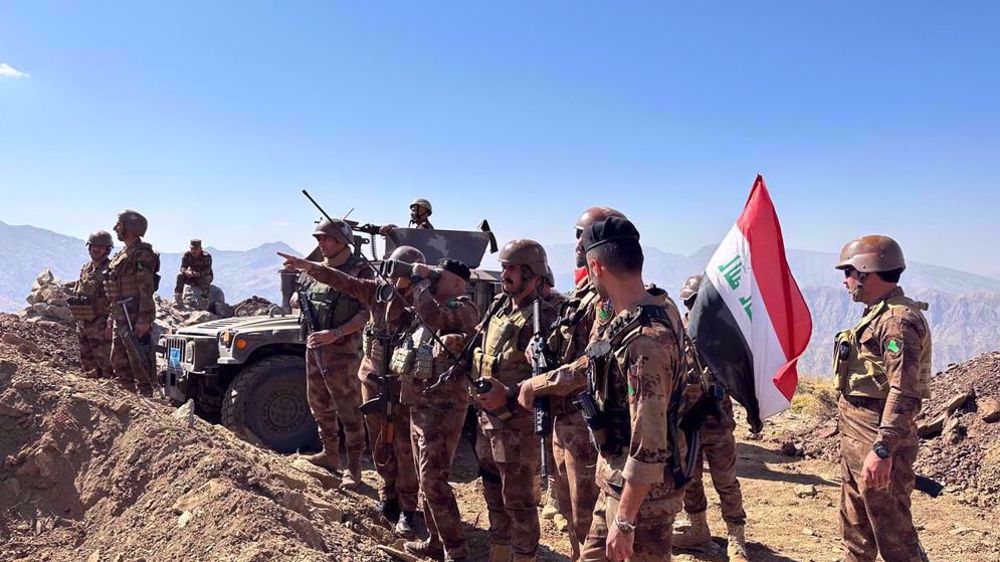
The spokesman for Iraq’s Joint Operations Command says government forces have gained full control over all border points with neighboring Iran, stressing Baghdad is fully committed to implementing the security agreement with Tehran.
“Iraqi government forces have begun to establish control over all border points with Iran, and apply Iraq’s laws and sovereignty there,” Major General Tahsin al-Khafaji said in an interview published on Sunday.
“The step is meant to prevent the use of Iraqi soil to launch an attack on neighboring states, as emphasized in the Iraqi Constitution,” he added.
“Iraqi forces have the military capabilities to control the common border strip between Iraq and Iran,” he said. “The central government in Baghdad and the Kurdistan Regional Government (KRG) coordinate at high levels in this regard.”
Khafaji underscored that Iraq is fully committed to implementing the security agreement with Iran because the pact is in the interest of Iraq’s national security.
Iran has set a deadline of September 19 for the Iraqi-Kurdish authorities to take action against secessionist anti-Iranian groups stationed in northern Iraq along the common border.
An informed source said on Friday that the terrorist groups had agreed to lay down their arms and leave the areas along the common border between Iran and the Iraqi Kurdistan Region.
The source, who spoke on condition of anonymity, highlighted that the KRG has practically started the activities to draw the separatist parties away from the Iranian border.
“The parties have agreed on relocation to the camps that have been already set up in the provinces of Erbil and Sulaymaniyah. They have completely approved the activities of the Kurdistan Regional Government,” the source stated.
Last week, Iraqi Foreign Minister Fuad Hussein said at a joint press conference with his Iranian counterpart Hossein Amir-Abdollahian in Tehran that Baghdad was committed to a security pact with Iran to disarm anti-Iran terrorist groups based in the Kurdistan region.
Stressing that the Iraqi constitution does not allow any group to use Iraqi territory to attack other countries, Hussein said that the Baghdad government and the Kurdistan region are cooperating with each other in this regard and both stress the necessity of implementing the security agreement.
In March, Iran and Iraq signed a security agreement that includes coordination in protecting the border between the two countries in the Iraqi capital of Baghdad.
Anti-Iranian terrorist groups residing in the Iraqi Kurdistan region have increased their malign activities, especially in border areas.
Responding to the activities, Iran’s Islamic Revolution Guards Corps (IRGC) launched several rounds of airstrikes against their positions since September 24 last year, vowing to continue the attacks till the groups are unarmed.
Iran has, on countless occasions, warned the Iraqi Kurdistan’s local authorities that it will not tolerate the presence and activity of terrorist groups along its northwestern borders, saying the country will give a decisive response should those areas become a hub of anti-Islamic Republic terrorists.
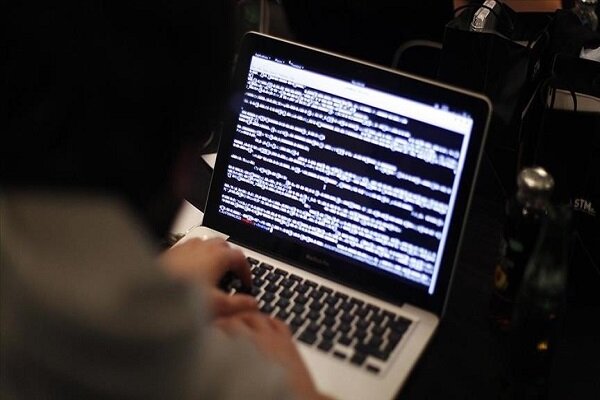

According to the Zionist media outlets, the Cyber Avengers hacker group has revealed information showing that it had targeted the electrical infrastructure of the network.
Last Monday, the Zionist Ynet news website, citing information security company ESET, announced that Iranian hackers had managed to penetrate the networks of about 32 Israeli companies.
The Iranian hackers also purportedly broke into a company in Brazil and another in the United Arab Emirates, ESET said.
The names of the companies were not disclosed, but according to the report they operate in diverse fields, including insurance, medicine, industry, communications, IT, technology, retail, automobile, law, financial services, architecture, and civil engineering.
Ynet said the hacking group identified itself as Ballistic Bobcat, which is also known by other names, including Charming Kitten, TA543, or PHOSPHORUS as well as APT35/42. It said at least 16 other companies were affected by secondary attackers.
The Israeli regime has targeted Iran on many occasions either directly or by instigating and providing support for the actual perpetrators.
In 2012, The Washington Post reported that the United States National Security Agency (NSA), its spy service CIA, and the Israeli regime’s military had worked together to launch malware, named Stuxnet, against Iran’s nuclear facilities.
In retaliation, Iranian hacking groups purportedly operate against targets in the Israeli regime.
In late 2020, the Zionist daily Ha’aretz claimed a group of elite hackers it introduced as Iranians had advanced as far as Israeli Prime Minister Benjamin Netanyahu’s office and the regime’s major aerospace company.
MNA/PressTV



Tahsin al-Khafaji, a spokesman for the Iraqi Joint Operations Command made his remarks in an interview with Al-Araby Al-Jadeed News website.
These measures aimed to prevent the use of Iraqi soil to attack any of the neighboring countries which has been emphasized in the Iraqi constitution, he said.
Iraqi forces have the military capabilities to control the Iraq and Iran border crossing, he emphasized, noting that there is high-level coordination with the Kurdistan Regional Government in this regard.
Al-Khafaji added that Iraq is fully committed to implementing the security agreement with Iran due to its benefits for Iraq’s national security.
Earlier on Wednesday, Iraqi Foreign Minister Fuad Hussein during a meeting with Iranian President Ebrahim Raeisi discussed ways to strengthen bilateral cooperation between the two neighboring countries.
Both sides discussed the implementation of the security agreement and the disarmament of armed groups on the Iraqi-Iranian border in the Kurdistan region of Iraq.
In this meeting, President Raeisi told the Iraqi foreign minister that the Islamic Republic of Iran will not tolerate the presence of terrorist groups at its joint border with the Arab country or on Iraqi soil.
The Iranian president said that the presence of terrorist groups at the Iran-Iraq border or on Iraqi soil is not tolerable for Tehran at all, stressing the need for fully implementing a security pact between the two countries.
Raeisi also said that Iran has already proved that it stands by Iraq at difficult times when parts of the Arab country had been seized by the Daesh terror group.
SD/IRN85230145

Pro-Palestinian hackers have knocked offline the Israeli railroad network, according to a report, less than a week after Iranian hackers reportedly breached the networks of more than 30 companies in the Israeli-occupied territories.
According to Israeli media outlets, the Cyber Avengers hacker group has revealed information showing that it had targeted the electrical infrastructure of the network.
Last Monday, the Israeli Ynet news website, citing information security company ESET, announced that Iranian hackers had managed to penetrate the networks of about 32 Israeli companies.
The Iranian hackers also purportedly broke into a company in Brazil and another in the United Arab Emirates, ESET said.
The names of the companies were not disclosed, but according to the report they operate in diverse fields, including insurance, medicine, industry, communications, IT, technology, retail, automobile, law, financial services, architecture, and civil engineering.
Ynet said the hacking group identified itself as Ballistic Bobcat, which is also known by other names, including Charming Kitten, TA543, or PHOSPHORUS as well as APT35/42. It said at least 16 other companies were affected by secondary attackers.
The Israeli regime has targeted Iran on many occasions either directly or by instigating and providing support for the actual perpetrators.
In 2012, The Washington Post reported that the United States National Security Agency (NSA), its spy service CIA, and Israel’s military had worked together to launch malware, named Stuxnet, against Iran’s nuclear facilities.
In retaliation, Iranian hacking groups purportedly operate against targets in Israel.
In late 2020, the Israeli daily Ha’aretz claimed a group of elite hackers it introduced as Iranians had advanced as far as Israeli Prime Minister Benjamin Netanyahu’s office and the regime’s major aerospace company.
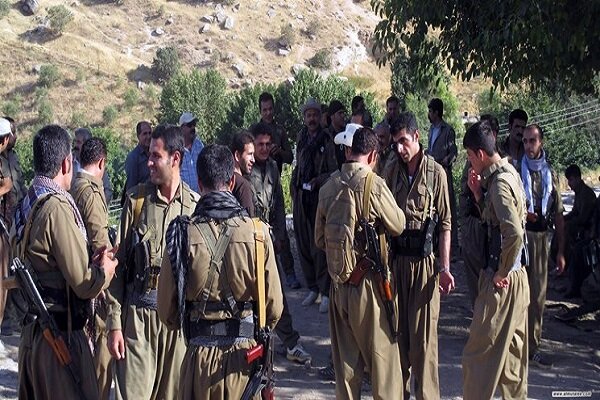

Tehran-based Tasnim News Agency quoted an informed political source as saying that the anti-Iranian opposition parties (known by Tehran as terrorist secessionist groups) have accepted the Iraqi Kurdistan Region’s call for them to disarm and get out of the border strip between Iran and the Kurdistan Region of Iraq.
The source, who spoke on condition of anonymity, said the KRG has practically started the activities to draw the opposition parties away from the Iranian border.
“The opposition parties (terrorist secessionist groups) have agreed on relocation to the camps that have been already set up in the provinces of Erbil and Sulaymaniyah,” the source added, denying rumors that the opposition parties have declined to accept the provision of a security agreement between Iraq and Iran or have plans to take up the option of military action.
“The opposition parties (terrorist secessionist groups) have completely approved the activities of the Kurdistan Regional Government,” the source stated.
Iran has set a deadline of September 19 for the Iraqi Kurdistan Regional Government to take action against anti-Iran terrorists stationed along the common border.
In July, Iran’s highest-ranking military commander cautioned the Iraqi government that its failure to meet a deadline of September for action against hostile armed groups in its northern regions will result in a fresh round of Iranian military strikes against them.
“Armed secessionist groups are there in northern Iraq that cause insecurity at our borders,” Chief of Staff of the Iranian Armed Forces Major General Mohammad Hossein Baqeri said.
MNA/PR